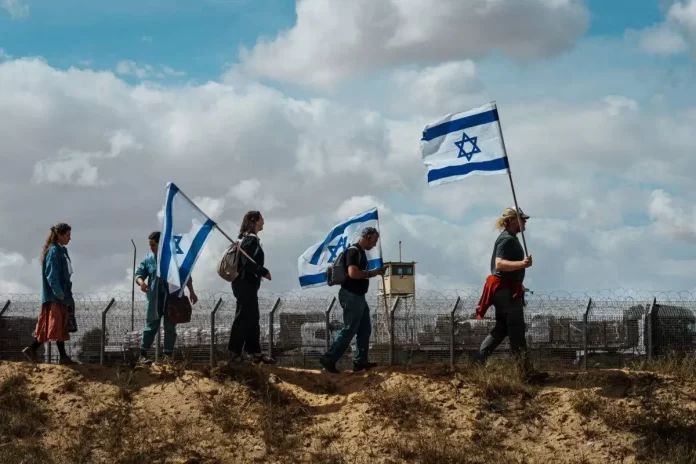Jerusalem – Israel announced on Sunday, March 2, 2025, that it is blocking the entry of all goods and supplies into the Gaza Strip, escalating tensions as ceasefire negotiations with Hamas falter. The decision, revealed by the office of Prime Minister Benjamin Netanyahu, comes with a stern warning of “additional consequences” should Hamas reject a U.S.-backed proposal to extend the truce.
Details surrounding the halt remain sparse, leaving uncertainty about whether aid flows have ceased entirely. The announcement follows the expiration of the first phase of the Israel-Hamas ceasefire on Saturday, a period marked by increased humanitarian assistance to Gaza. Talks for the second phase—intended to secure the release of dozens of hostages held by Hamas in exchange for an Israeli withdrawal and a permanent ceasefire—have yet to materialize.
Also Read: Palestinian Prisoner Released After Decades, Sends Wife a New Wedding Ring

Earlier on Sunday, Israel voiced support for a U.S. proposal, attributed to Trump administration Mideast envoy Steve Witkoff, to prolong the initial ceasefire through Ramadan and Passover, ending April 20. According to Netanyahu’s office, the plan stipulates that Hamas would free half of the remaining hostages on the first day, with the rest released upon finalizing a lasting ceasefire agreement.
The prime minister’s office provided no further clarification on the aid suspension or its scope. Mediators—including the United States, Egypt, and Qatar, who have facilitated discussions between the two parties for over a year—have not yet commented on Israel’s move or the ceasefire extension proposal. Hamas, likewise, has not issued a response to the U.S. plan.
The sudden halt to supplies threatens to deepen the humanitarian crisis in Gaza, where aid has been a lifeline amid ongoing conflict. With negotiations stalled and no clear timeline for resolution, the region braces for potential further escalation.
Key Points:
- Aid Suspension Announced: On Sunday, March 2, 2025, Israel declared it is stopping all goods and supplies from entering the Gaza Strip, though it’s unclear if the halt is fully implemented.
- Reason and Warning: The decision, from Prime Minister Benjamin Netanyahu’s office, is tied to Hamas not accepting a U.S.-proposed ceasefire extension, with Israel warning of “additional consequences” if Hamas refuses.
- Ceasefire Context: The first phase of the Israel-Hamas ceasefire, which boosted humanitarian aid, ended on Saturday; the second phase, involving hostage releases and an Israeli withdrawal for a permanent truce, remains unnegotiated.
- U.S. Proposal: Israel supports a U.S. plan, credited to Trump envoy Steve Witkoff, to extend the initial ceasefire through Ramadan and Passover (until April 20), with Hamas releasing half the hostages initially and the rest upon a permanent ceasefire deal.
- Silence from Mediators and Hamas: The U.S., Egypt, and Qatar—mediators for over a year—have not commented, and Hamas has not responded to the proposal.



